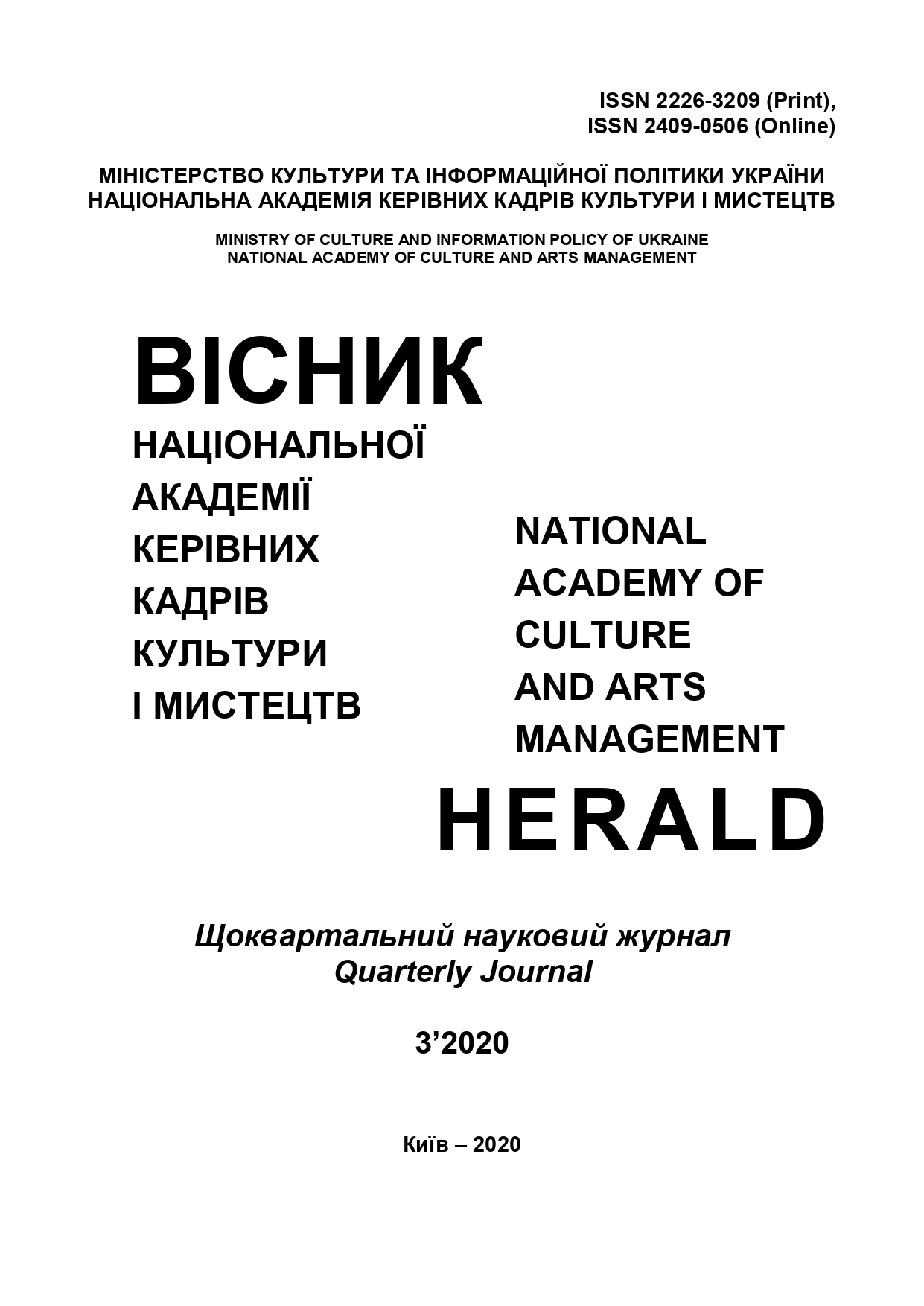Особливості формування латиноамериканських національних композиторських шкіл у постколоніальний період
Features of the formation of Latin American national composer schools in the post-colonial period
Author(s): Larysa Leonidivna VasylievaSubject(s): Education, Customs / Folklore, Music, Recent History (1900 till today), 19th Century
Published by: Національна академія керівних кадрів культури і мистецтв
Keywords: musical art of Latin America; musical nationalism; Aztec Renaissance;
Summary/Abstract: The purpose of the article is to highlight the formation features of national composer schools in Latin America in the context of the XIX-ХХ centuries artistic trends. The methodology of the study is based on an integrated approach using system-structural, functional and comparative methods, which allows one to study the peculiarities formation features of national composer schools of Argentina, Brazil, Cuba, Mexico in the context of European neo-folklore and Latin-American musical nationalism of the 19th and 20th centuries. The scientific novelty is to cover the principles of musical nationalism embodiment in the fields of musical thinking, genre, style, means of musical expressiveness (mode, harmony, rhythm, timbres, and their combinations) common to the Latin American countries. Conclusions. Understanding Latin American composers of their own cultural heritage on the basis of European neo-folklorism entailed the formation of spiritual and artistic "nationalism" ideology embodied as "Negrymism" in Cuba and in Brazil, "Indianism" in Argentina, "Aztec Renaissance" in Mexico. If, at the level of musical expressiveness, the search for Latin American composers as a whole was in line with European neo-folklore, then in the field of musical thinking, style, and genre they were discovered that led to the formation of a specific Latin American image of artistic and musical thinking, namely: the free combination of different layers own folklore, national folklore and European genres, free manipulation of the means of various European musical eras.
Journal: Вісник Національної академії керівних кадрів культури і мистецтв
- Issue Year: 2020
- Issue No: 3
- Page Range: 183-188
- Page Count: 6
- Language: Ukrainian

